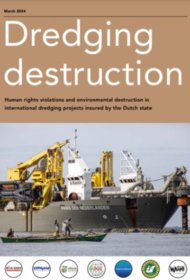A New Climate Bank? World Bank on Thin Ice…
The World Bank, an institution that aspires to achieve global sustainable development, now wants to position itself as an environmental bank. This role does not seem like a natural fit and is inconsistent with the implementation of its policies. So, for example, its climate investment funds' criteria are not ambitious enough to realise a transition to (real) renewable energy.
Moreover, the World Bank claims not to want to interfere with political decisions, while the solutions for climate issues will have to be found through political agreements. Western countries also dominate the decision making processes within the bank, while the climate issue particularly affects the very poorest countries. In short: is the World Bank really suitable for a role as an environmental bank?
Climate change, causes and finance
The current level of global warming has been caused mainly by industrialisation and the modern lifestyle that is particularly prevalent in western countries. Its consequences, however, mainly affect developing countries, especially the poorest people in those countries. They have the fewest means to take measures against the impacts of droughts, floods and rising sea levels. Climate change is thus a reflection of the imbalances in global political and -economic power relationships.
To further counteract climate change (mitigation) and to protect the most vulnerable groups and eco-systems against the effects that are already taking place (adaptation), a global agreement with concrete responsibilities is of great importance. Internationally, there is great division about where the main responsibility lies and how much money can and should be committed and by whom. The question is whether the upcoming climate summit, to be held in December in Copenhagen, will lead to an agreement.
World Bank and UN
The World Bank has not awaited the outcome of the negotiations. On the initiative of a number of its donors, namely Japan, the United Kingdom and the United States, it already established so-called climate investment funds in 2008, for which over 6 billion US dollars have been made available so far. With its mission to combat global poverty and promote sustainable development, the World Bank is becoming increasingly prominent as an advocate of the so-called global public goods, i.e. resources that serve global public interest (besides conflicts and pandemics, other issues such as climate change fall under this).
A lot of money, which could be put to good use in developing countries, will potentially be made available by industrialised countries and companies to avert and adapt to climate change. According to an estimate by Yvo de Boer, Head of the United Nations Framework Convention on Climate Change (UNFCCC) the long term projection is for an annual sum of 200 billion US dollars for mitigation and 100 billion US dollars for adaptation. Compared to the 120 billion US dollars spent annually on development cooperation, on average, these are rather significant amounts. That's why the World Bank is so interested in playing a prominent role.
Doubts
There are doubts about the legitimacy of the World Bank as a climate bank, however. The World Bank's decision making process is dominated by Western countries. The United Nations (UN) is more representative and the UNFCCC already plays a leading role in the formulation of international climate policy. The World Bank's climate investment funds undermine the UNFCCC by realising international climate policy without waiting until international political consensus has been reached. Moreover, choosing new World Bank funds over funds that were created by the United Nations for the same purpose, expresses little faith in the UN process. In addition, contributions to the World Bank are voluntary and are counted as official development assistance by the donor countries. Seen from the point of view that the polluter should pay, climate funds should always be additional and should not be used instead of aid budgets. Countries like China and India have also indicated that the World Bank's initiatives are unacceptable to them.
The programming content of the climate investment funds has also been controversial. According to their criteria, investments in efficient coal plants and large dams can be financed with climate funds. That would be detrimental to the promotion of energy saving and 'real' renewable energy sources (such as wind or solar energy). Within the framework of the World Bank, there is also the possibility to use climate investment funds not only as donations, but as loans, which means that developing countries could build up debt.
No longer "business as usual"
There is still insufficient awareness at the World Bank of its need to get rid of its "business as usual" pattern. The wide range of existing World Bank investments in coal plants and oil projects are poorly compatible with the environmentally friendly image that they are trying to cultivate. While the Bank has indeed invested more in energy saving and renewable energy in Financial Year 2008, it is disturbing to see that there are still so many large scale investments in the expansion of the exploration and use of fossil fuels (especially coal power plants) and that there has even been a sharp increase in these types of investments in recent years. This makes the World Bank's position on climate change ambiguous and even controversial.
With its climate investment funds, the World Bank, which explicitly states in its Articles of Agreement that it does not want to interfere in the political affairs of its members, finds itself on a slippery slope. Both in terms of interference in political affairs - where the UN should play a leading role - and the need for climate considerations to play a far more fundamental role in all its activities, the World Bank has to find a new balance. Many eyes are now trained on its climate policy. This gives Both ENDS and its partners a bigger opportunity to call for fundamental reforms in the field of sustainability and greater public participation in and transparency at the World Bank.
Read more about this subject
-
Blog / 15 April 2024
The year of truth: EU Member States urged to combat deforestation
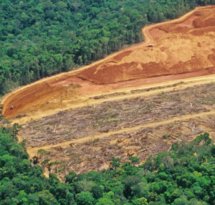
The EU is the world's largest "importer of deforestation," due to the huge volumes of unsustainably produced soy, timber, palm oil, and other raw materials that EU member states import. After many years of delay, the European Parliament and the European Council passed a law in December 2023 to address this problem: The EU Deforestation Regulation (EUDR). Both ENDS is part of a broad coalition of organizations that have been pushing for this European legislation. However, there is now a serious delay, and perhaps even postponement, of the law's implementation. Objections have been raised by a number of member states, who are sensitive to lobbying by certain business sectors and producer countries.
-
News / 4 April 2024
EU ECA fossil fuel phase-out tracker reveals EU Member States’ lagging commitment to Paris Agreement goals in export credit policies

Our new report titled EU ECA fossil fuel phase-out tracker by Both ENDS, Counter Balance and Oil Change International sheds light on the concerning lack of harmony between EU Member States' export credit climate policies.
The report was updated on April 17th, following new responses by Member States on their respective policies.
-
Blog / 4 April 2024
If we women don't speak up, no one will speak for us
 By Maaike Hendriks and Tamara Mohr
By Maaike Hendriks and Tamara MohrThis February women environmental defenders from around the world met each other in Indonesia. All these defenders face structural violence. GAGGA, the Global Alliance for Green and Gender Action, supports these women. This meeting in Indonesia provided a unique space for women, trans-, intersex and non-binary people who are often the subject of conversation but rarely have the opportunity to engage with each other and meet other defenders from around the world. For they are all amazingly knowledgeable, strong and resilient women whom we should take seriously.
-
News / 2 April 2024
The Climate lawsuit against Shell
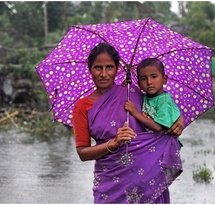
Milieudefensie (Friends of the Earth Netherlands) and 6 other organisations are confidently heading into Shell’s appeal of the 2021 climate ruling, which will take place on April 2nd in The Hague. In the landmark lawsuit against the oil and gas company, the court decided that Shell must slash its CO2 emissions by 45%, in line with international climate agreements.
-
News / 29 March 2024
Both ENDS visit Tweede Kamer to talk about destructiveness of dredging worldwide
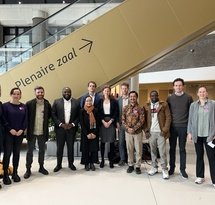
This week several Both ENDS colleagues visit Tweede Kamer der Staten-Generaal to meet Christine Teunissen and Luc Stultiens with partners from Mozambique, Indonesia and the Filippines to talk about the destructiveness of dredging worldwide and especially in projects with the aid of the Dutch government.
Read their plea
-
News / 27 March 2024
Changing of the guard: Paul Engel and Leida Rijnhout on the unique strength of Both ENDS
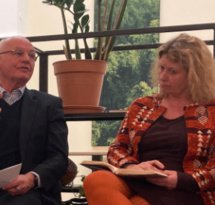
After eight years as chair of the Both ENDS Board, Paul Engel is now passing on the baton to Leida Rijnhout. In thus double interview, we look back and forwards with the outgoing and incoming chairs. Paul Engel sets the ball rolling on an enthusiastic note: “This organization decides itself what it is going to do, and does it very well. As the Board, we help and use our networks to provide support”. A conversation about taking the lead in systemic change and working with others around the world.
-
Press release / 25 March 2024
Dredging destruction; worldwide research into Dutch dredgers

Dredging Destruction: Report reveals how Dutch dredging companies are systematically destroying human lives and the environment around the world with the help of taxpayers’ money
The Netherlands is providing billions of euros in support for dredging projects by Boskalis and Van Oord around the world. All of these projects are destroying human lives and the environment. The Dutch government’s policy to protect people and planet is failing systemically. And after twelve years of studies and talking, there are no real improvements. It is time for a thorough clean-up of government support for the dredging sector.
-
Publication / 25 March 2024
-
News / 19 March 2024
Both ENDS - Remarkably Special
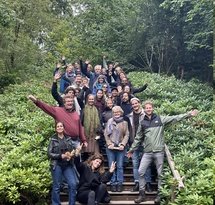
At Both ENDS, we hold our own responsibility, self-direction, an open feedback culture, and personal development in high regard. Chaos, you might think? Not at all, it leads to an effective way of working with much enjoyment. The flat organizational structure that Both ENDS has been implementing since 2016 is founded on collectivity. In this, you can also see our aim of 'Connecting people for change' reflected.
-
News / 12 March 2024
Equality as a key for international trade
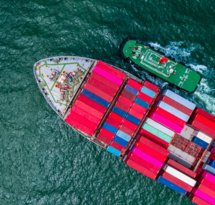
Trade has been in the global spotlight once again in recent times. Recently, ministers from around the world gathered in Abu Dhabi at the WTO for negotiations on world trade in the coming years. However, participants from civil society were silenced. Never before has their freedom been so severely restricted at the WTO. In a time when geopolitical tensions are escalating by the day, it is crucial to prioritize equality in international trade. -
Event / 12 March 2024
From Policy To Practice: Funding Locally-led Gender-Just Climate Action
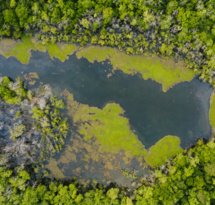
A discussion on the intersection of climate and gender justice - specifically on financing mechanisms for gender-just climate solutions!
-
News / 6 March 2024
Inspire inclusion at Women's day!
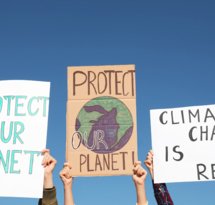
Happy Women's Day!
Friday March 8th we celebrate a gender equal world; free of stereotypes, bias, and discrimination. Around the world women are powers of change. We proudly present you; the voices of the next generation of environmental leaders of the JWH initiative. All our grantees are driving change in the environmental sector and have a strong say about the inclusive world.
-
News / 6 March 2024
Export Credit Agencies and development finance in the EU
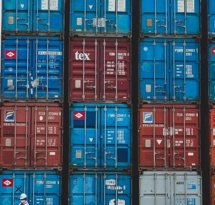
We are seeing increased interest in the EU for blending different development financial instruments with export credits, even though export credits are not fit for this purpose. The European Commission is developing plans for using so-called export credits for financing everything from raw materials, to development projects, to weapons. A new report of Counter Balance is shedding light on the significant environmental and social impacts of projects financed by ECAs.
-
Press release / 4 March 2024
Dutch government calls for investigation into Malaysian timber certification
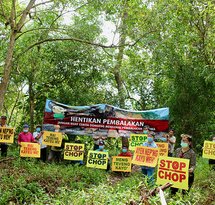
The Dutch government expects PEFC International to undertake an investigation into its own role as a forest certification system, using the Malaysian Timber Certification Scheme (MTCS). "It is about time the Dutch government takes a leading role in ensuring Malaysian timber entering The Netherlands is not associated with deforestation and human rights abuses," states Paul Wolvekamp of Both ENDS. "Considering that the Dutch government has the ambition to build 900.000 houses in the immediate future, involving massive volumes of timber, such as timber from Malaysia for window frames, builders, contractors, timber merchants and local governments rely on the Dutch government to have its, mandatory, timber procurement better organised, i.e. from reliable, accountable sources'.
-
Blog / 27 February 2024
Partners fighting for rights within natural resource exploration in Uganda
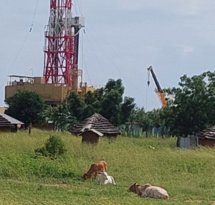
A recent visit to Uganda highlighted the country as the latest example of ethical, environmental and human rights dilemmas brought forth by natural resource exploration.
Under the guise of economic prosperity and energy security, the future of Uganda’s forests, lakes, national parks, and by extension that of the people that depend on these resources, is increasingly endangered. Both ENDS partners in Uganda work with local communities to preserve these natural environments and the livelihoods that come from it.
-
Blog / 26 February 2024
Brumadinho: 5 years without justice
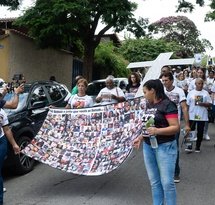
On January 25, 2019, Brumadinho region witnessed a tragedy-crime that claimed 272 lives, including two unborn children, affectionately called "Jewels" in response to VALE’s declarations that the company, as a Brazilian jewel, should not be condemned for an accident. However, the investigations about B1 dam collapse, at Córrego do Feijão Mine, showed that the scar left on the community and environment was not an accident, but VALE negligence.
-
Blog / 26 February 2024
Exploring sustainable farming practices with partners in Indonesia
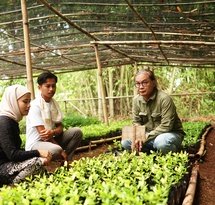
From land regeneration to improving soil health – trees play a crucial role in almost all our ecosystems. Agroforestry makes use of these benefits by combining agriculture and forestry. Agroforestry, and the reforestation and conservation efforts that are part of it, improves biodiversity and climate resilience, as well as the livelihoods of the farming communities involved.
-
Blog / 26 February 2024
Impacts of the fossil fuel sector in Guanabara Bay
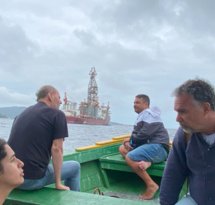
Last September, together with our Brazilian partner FASE, Marius Troost of Both ENDS visited Guanabara Bay (near Rio de Janeiro) to map the impacts of the fossil fuel sector there. During the trip, he was struck by the braveness and fearlessness of the local fisherfolk who protest the injustices faced by the people who live around Guanabara Bay and about the damage done to the environment.
-
News / 14 February 2024
Petition to protect the Saamaka people and the Amazon Forest
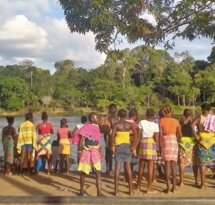
The Saamaka People, the Afro-descendant tribe of Suriname, have preserved close to 1.4 million hectares of the Amazon rainforest. They have for decades urged the government to recognise their ancestral territorial land rights.
-
News / 8 February 2024
The litmus test for the devastating race track in Lombok
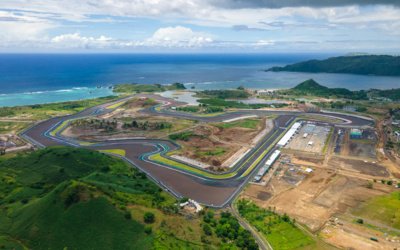
A race track for international motor bike events in Lombok continues to worry human rights experts around the world. Both ENDS and its partners are increasingly concerned about the project’s implications for ethical standards in global development financing going forward for it continues to hurt the most basic social and environmental safeguards.





